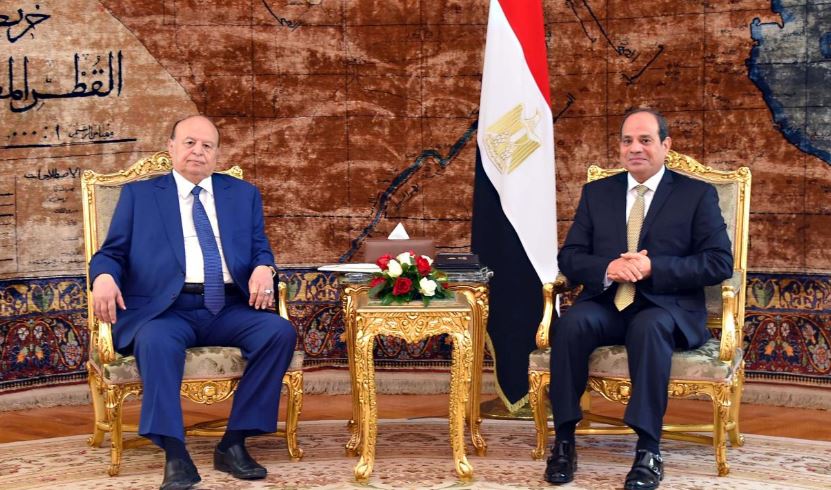Egypt’s president said on Monday Cairo was deeply concerned about security in the Red Sea following an attack by Yemen’s Houthis on two oil tankers that forced Saudi Arabia to suspend crude shipments temporarily through the strait of Bab al-Mandab.
Speaking at a joint press conference with his Yemeni counterpart, President Abdel-Fattah al-Sisi also said Cairo was committed to helping Yemen regain its security after more than three years of war that has killed thousands of people.
“We categorically reject that Yemen would become a foothold for the influence of non-Arab forces, or a platform for security and stability threats against the brotherly Arab countries or freedom of navigation in the Red Sea and Bab al-Mandab Strait,” Sisi said, speaking alongside President Abd-Rabbu Mansour Hadi.
Last month, Saudi Arabia temporarily halted oil shipments through Bab al-Mandab citing security concerns after Iran-aligned Yemen’s Houthis attacked two oil tankers in the Red Sea near the strait with missiles, damaging one vessel.
Although Saudi Arabia resumed oil shipments through the strait several days later, the incident has highlighted the volatility of the situation in the area, where fighting between the Houthis and supporters of Hadi’s government has been raging since 2015.
Yemen lies along the southern end of the Red Sea, one of the most important trade routes in the world for oil tankers. The tankers pass near Yemen’s shores while heading from the Middle East through the Suez Canal to Europe.
Speaking after talks with Hadi in Cairo, Sisi said Egypt supported the internationally-recognized Yemeni government and was committed to helping it restore stability to the country.
Egypt, the most populous country in the Arab world, is a member of the Saudi-led coalition which intervened in Yemen’s civil war in 2015 to try to restore Hadi to power against what it sees as Iranian support for the Houthis.
But its role has been mainly to patrol Bab al-Mandab with naval vessels.
Hadi said he had briefed Sisi on what he called Iranian support for the Houthis in endangering security in the Red Sea.
“We discussed the dangers that the Red Sea had been exposed to because of the terrorism of the Houthi militias and its supporter, Iran, which aims not only to impact Red Sea security but Arab national security as a whole,” Hadi said.
Iran denies providing military support to the Houthis





